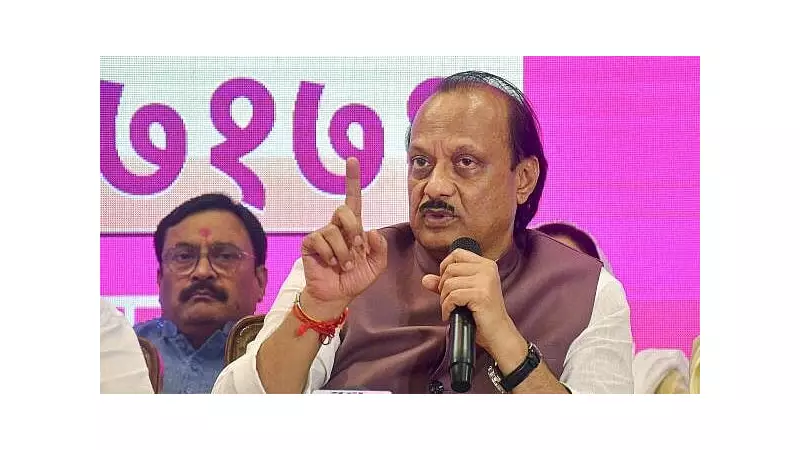
In a striking electoral gambit, Maharashtra's Deputy Chief Minister and senior Nationalist Congress Party leader, Ajit Pawar, has directly linked the flow of development funds to voter support in the ongoing Lok Sabha elections. The veteran politician made his stance unequivocally clear during a public address, framing the choice before the electorate in starkly transactional terms.
The Direct Appeal: A Quid Pro Quo Proposition
Addressing a gathering, Ajit Pawar presented a straightforward proposition to the voters. He stated that if the electorate rejects his party's candidate, he would, in turn, reject their demands for development funds. "You have votes, I have funds," he declared, encapsulating the core of his argument. He elaborated that a positive outcome for his party's nominee would ensure that development works in their area would be sanctioned without delay.
This public statement was made on a Saturday, as the high-stakes battle for India's lower house of parliament intensifies across the state. The comments are seen as a direct attempt to consolidate support for the Mahayuti alliance, of which his faction of the NCP is a key constituent.
The Baramati Battleground and Political Repercussions
The context of these remarks is crucial. They were delivered in the politically sensitive Baramati constituency, the Pawar family's stronghold. Here, a high-profile contest is underway between Ajit Pawar's wife, Sunetra Pawar, and his cousin and sitting MP, Supriya Sule, from the rival NCP (Sharadchandra Pawar) faction.
This internal family feud has split the Pawar political legacy, making Baramati one of the most keenly watched constituencies in the 2024 general elections. Ajit Pawar's remarks are interpreted as a hard-nosed campaign tactic aimed at leveraging his position as the incumbent Deputy Chief Minister to sway voters. His message underscores the administrative power and control over the state's treasury that he currently wields.
Analyzing the Strategy and its Implications
Political analysts suggest that this open linkage of votes to funds represents a pragmatic, albeit controversial, campaign strategy. It moves beyond vague promises of development to a more explicit understanding of the power dynamics between the elected representative and the constituency.
By framing the election in such direct terms, Ajit Pawar is attempting to project an image of a leader who can deliver tangible benefits, contrasting himself with rivals who may not have the same access to the state's financial resources. However, this approach also opens his campaign to criticism from opponents who may label it as coercive or undermining the democratic process.
The outcome in Baramati and the broader Maharashtra political landscape will reveal whether this bold, no-holds-barred pitch resonates with the electorate or backfires. The results will be a significant indicator of the effectiveness of combining administrative authority with electoral politics.





